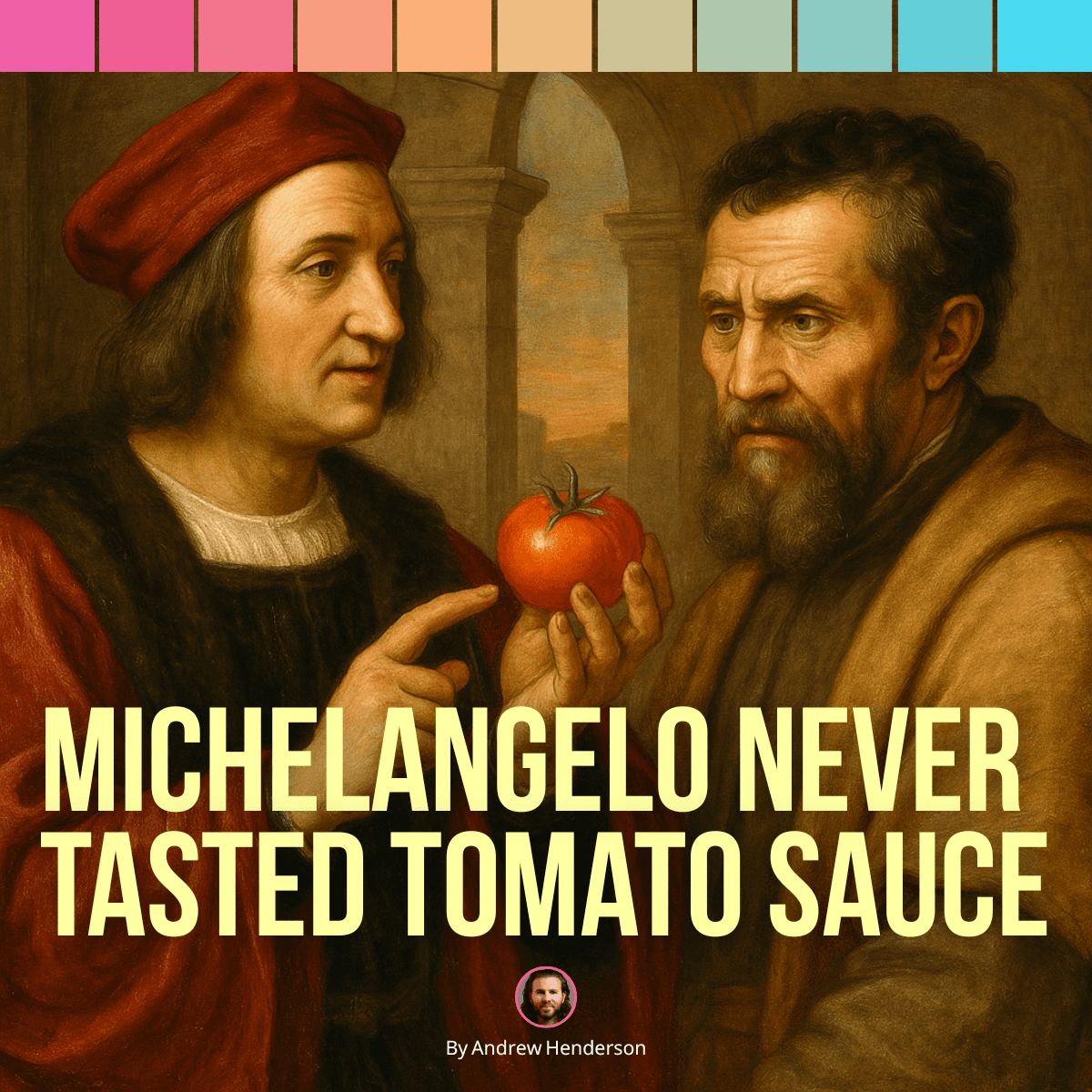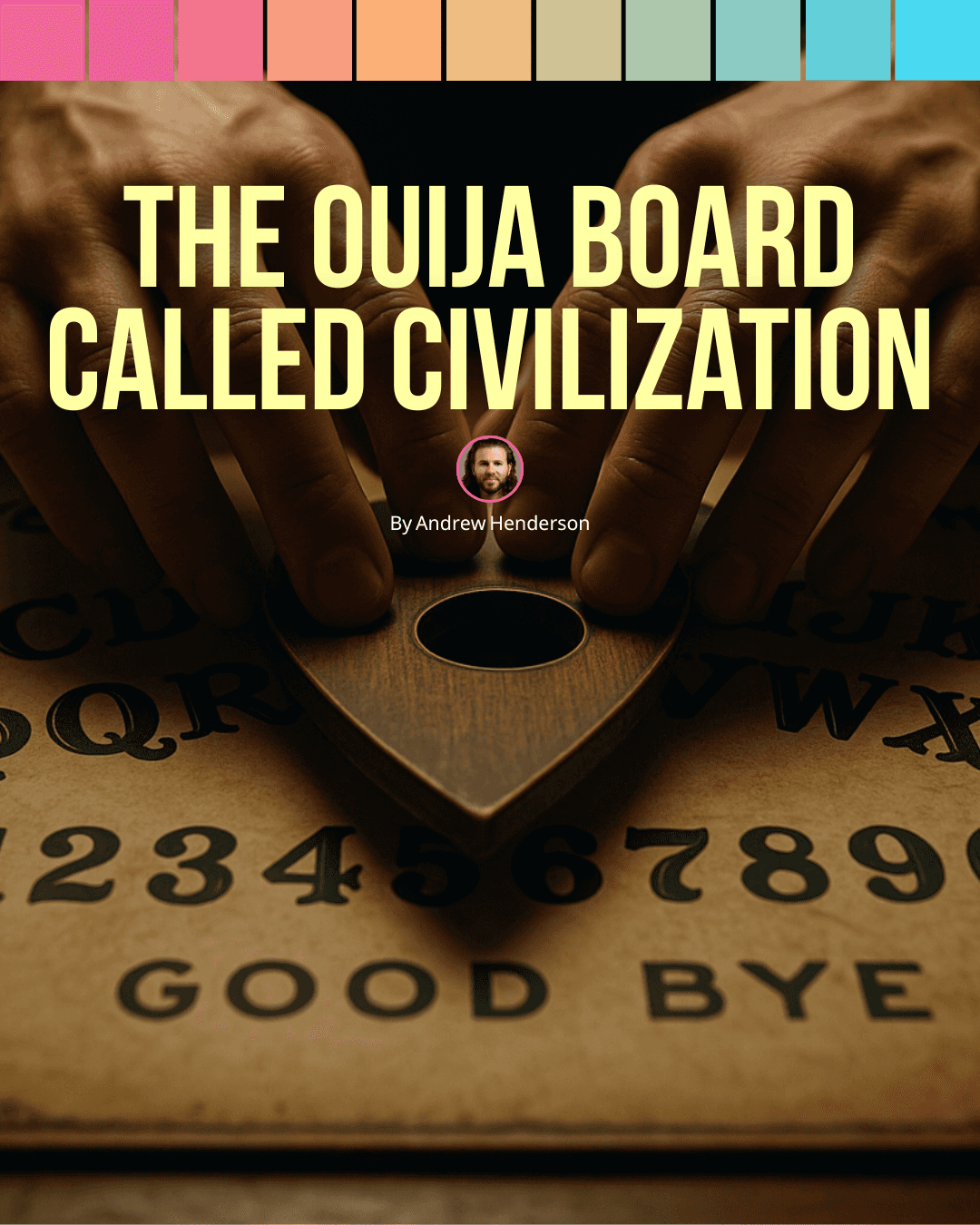
Michelangelo never tasted tomato sauce.
That sounds impossible, almost wrong, doesn't it?
But it's true. Tomatoes weren't a part of his world. They were brought over from the Americas after Columbus crossed the Atlantic.
Why does this matter?
Because it shows how easily we mistake the recent for the eternal. The cultures we inherit often feel ancient — like they've always been here, just as we found them. But most of what defines them arrived far more recently than we realize.
Most of what feels timeless is only a century or two old. Cultures we identify with. Symbols that define them. They've been assimilated, repurposed, and redefined countless times — bearing little resemblance to how they began.
And it's not just our cuisine. It's the structure of our entire world. What we consider "adult life" is no exception.
The 40-hour work week? Started in 1926.
Retirement as a life stage? That's a Post-WWII idea.
The concept of a "career" as we know it is barely 100 years old.
The story of what it means to be successful — the one you're measuring yourself against right now — is newer than the internet.
So why do we beat ourselves up for not measuring up to it?
Why do we tie our self-worth to careers that didn't even exist 40 years ago?
Why do we feel guilty for changing professions after "investing so much time"?
Why do we feel embarrassed for wanting something different than what our friends and family seem to want?
Because when something is everywhere, we stop seeing it as a choice and start seeing it as "just the way things are." Like the tomato in Italy, it becomes absorbed so completely that we can't imagine it any other way.
But that doesn't make it true. It just makes it common.
So what is actually permanent? What's been true across all of human history?
Curiosity. Play. The need to belong. The desire to create things that matter. The urge to build, to connect, to figure things out.
Those have been around as long as humans have.
So if most of what feels mandatory is recent, the question then becomes: how much of your time is spent on things you consciously chose?
And how much of it is just another tomato — something so embedded in your daily routine that you didn't even stop to notice that it was inherited?
If the world is made of stories written before you got here, maybe it's time to start asking which ones are actually worth keeping.


